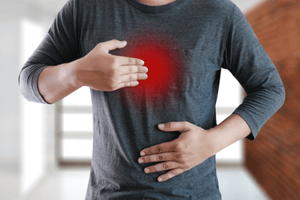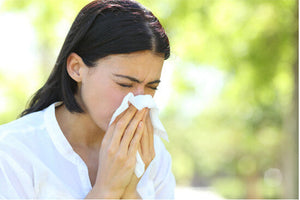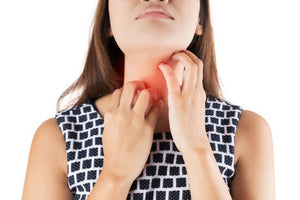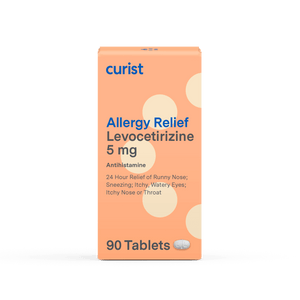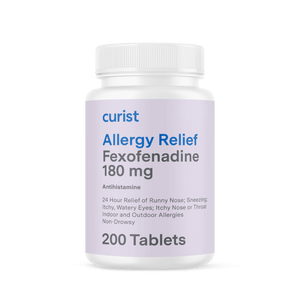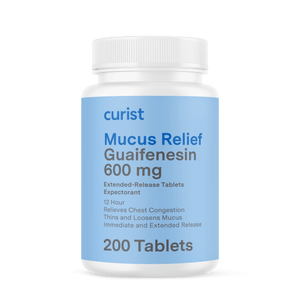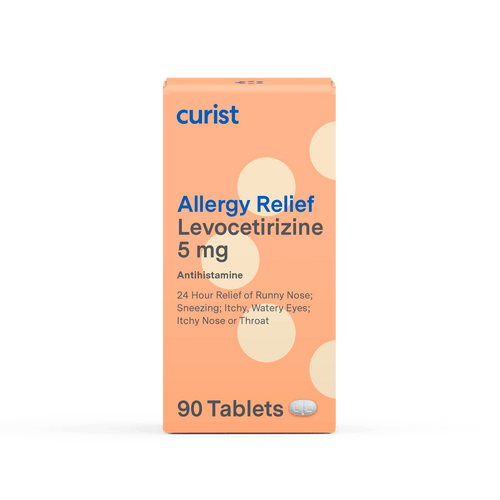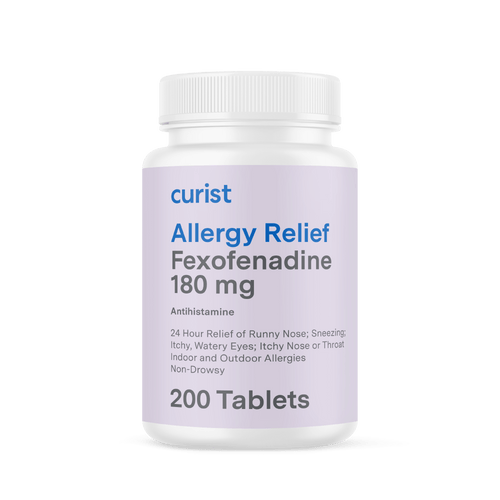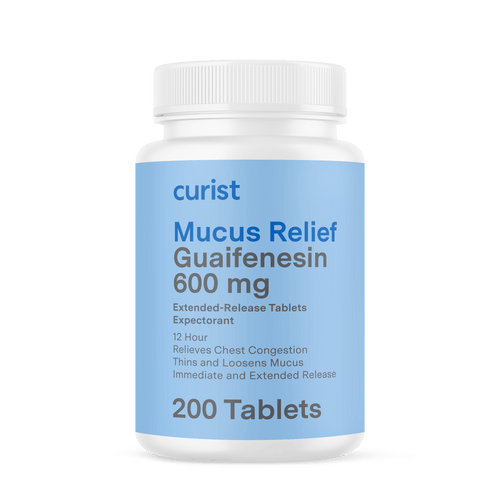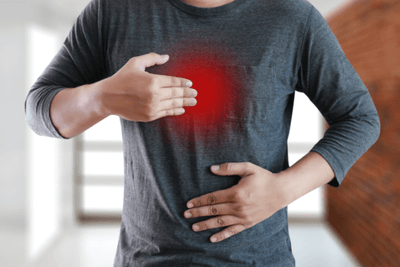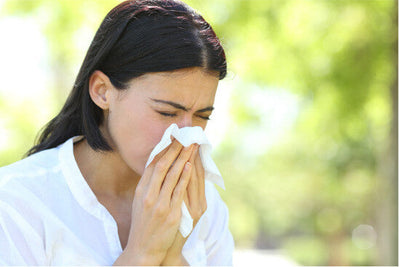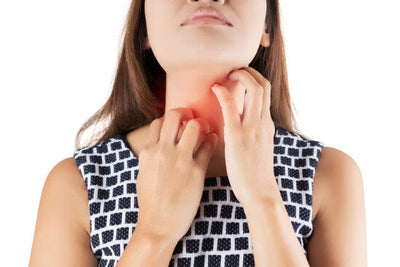By Audrey Anderson, The University of Texas at Austin College of Pharmacy, and Dr. Marc Goldstein, MD, Curist Medical Advisor
Curist delivers over-the-counter medicines to your door at a fraction of the price of traditional brands. We hope everyone stays safe and healthy during this time.
Many of us are monitoring ourselves for symptoms that we suspect could be caused by the new coronavirus (COVID-19). Should we be concerned if we find ourselves sneezing?
Is Sneezing a Symptom of Coronavirus (COVID-19)?
Common symptoms caused by coronavirus are fever, cough, shortness of breath, fatigue, and achiness. Although sneezing has been reported in individuals with coronavirus, it’s not nearly as common as the other symptoms mentioned and is not listed by the CDC as the typical COVID symptoms. Odds are, if you don’t have any of the other symptoms particularly fever and no close contacts with the coronavirus, it is not likely that coronavirus is causing your sneezing.
Are Allergies Making You Sneeze?
Sneezing is a common symptom of allergies, and may be present with other allergy symptoms like itchiness. Fortunately, sneezing from allergies can be treated with common allergy medicines like antihistamines. Check out Coronavirus vs Allergies to learn how to tell the difference between allergies and coronavirus.
If you find yourself sneezing during your spring cleaning, it could simply be from all the dust and dirt that was just kicked up into the air. That may be related to dust allergies as well. For tips about cleaning and disinfecting, especially with COVID, learn more in Cleaning & Disinfecting.
Is A Cold or Cold Air Making Me Sneeze?
Colds and other upper respiratory tract infections (besides COVID-19) can make you sneeze. Sneezing is a widespread symptom of the common cold. And even if you do not have the common cold, cold and dry air can actually make you sneeze in some cases. The cold and dry air irritates your nasal passages and makes you sneeze.
Do Nasal Sprays like Flonase Make You Sneeze?
Typically, intranasal sprays like fluticasone (big brand Flonase and available at Curist) and Azelastine (brand Astelin) are used to treat common allergy symptoms like sneezing. But in some cases, the act of spraying something in your nose can occasionally irritate the nasal passages enough to cause immediate sneezing after use. To learn more, check out Know Your Nose: Nasal Steroid Sprays.
Is My Sneeze A Sign of Coronavirus or Allergies?
If you do have a sneeze, here’s a few tips to determine if your sneeze is coronavirus or allergies:
- Typically allergy-related sneezes happen in quick, uncontrollable fits. Sneezing associated with coronavirus is typically more infrequent, is not a rapid-fire of sneezes, and occurs with the other coronavirus symptoms.
- To learn more about these sneezing fits, check out Uncontrollable Sneezing Fits: Why Can't I Stop Sneezing.
- Notice how you feel this allergy season versus prior seasons. Pay attention to see if your sneeze and symptoms feel different than in prior years.
Coronavirus: Steps You Can Take to Protect Yourself From COVID-19 If You Or Others Are Sneezing
Please note that allergies are not contagious so if some with allergies sneezes near you (and they do not have coronavirus), you are not at risk to contract either allergies or coronavirus. In contrast, coronavirus is contagious and can be passed through sneezes. Here’s a few steps to protect yourself and others.
- Cover your sneeze. Sneeze into either your elbow or a tissue that can be thrown away in a closed container. Wear a mask.
- Wash your hands. If you don’t have access to soap and water, use a hand sanitizer that contains at least 60% alcohol. This kills the coronavirus.
- Find allergy symptom relief. If you think that your sneezing might be due to allergies, make sure to take your allergy medicine, like Curist Allergy Relief to treat sneezing.
- Seek medical attention. If you have symptoms like fever, cough, and shortness of breath, seek emergency medical attention. If you have reason to believe that you may have COVID-19, call your healthcare provider for further direction.
What is The Best Medicine To Treat Sneezing From Allergies?
If you think that your sneezing is related to allergies, there are several medicines that work. The most best treatment for sneezing to try first is an antihistamine, which treats common allergy symptoms like sneezing and itchiness. Products like cetirizine (brand Zyrtec), fexofenadine (brand Allegra), and levocetirizine (brand Curist) are examples of antihistamines that are the best medicines to treat sneezing. Another medicine option to treat sneezing is a nasal spray, like fluticasone (brand Curist) which in some cases can also be paired with an antihistamine to best treat sneezing. If these do not work for you, please discuss with your medical provider for additional options.
For more information about coronavirus, please visit the CDC website. As always, if you are not feeling well, please reach out to your medical provider or call 911.

